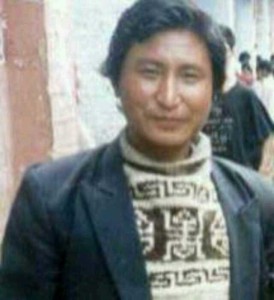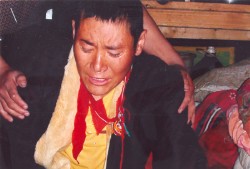
On 3 April 2013, after 17 years Jigme Gyatso was released from prison. He entered prison a strong and healthy 35 year-old and left with weak eyesight, heart complications and kidney damage that kept him from walking upright. Eight years before his release Jigme Gyatso met the UN Special Rapporteur on Torture, who strongly recommended Jigme Gyatso be released because his conviction for “endangering state security” by creating an illegal organization was based on information extracted by torture. During his 17 years imprisonment, he was electrocuted with electric batons and brutally beaten. Today, three months after Jigme Gyatso’s long-awaited release from prison, is the International Day in Support of Torture Victims as Jigme Gyatso struggles with his broken body to live again.
International Day in Support of Torture Victims commemorates the entry into force of the Convention Against Torture, Cruel, Inhuman, and Degrading Treatment (or Convention Against Torture) on 26 June 1987 with the goal of eradicating torture.
No act, except for slavery, has been prohibited as unanimously and repeatedly as torture. The international community recognizes that the prohibition of torture, like genocide and slavery, is a jus cogens norm, a preemptory norm of international law from which no derogation is permitted. The universal rejection of torture forces torturers to deny its existence and hide their victims from the world by placing them in “black sites” and secret detention facilities or denying their existence.

